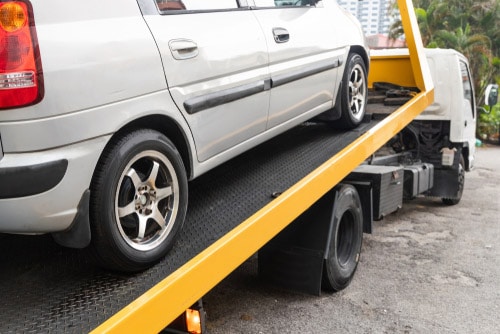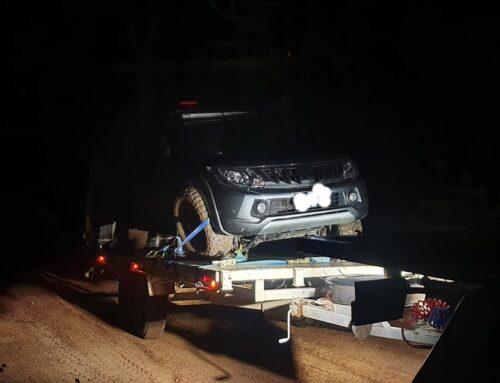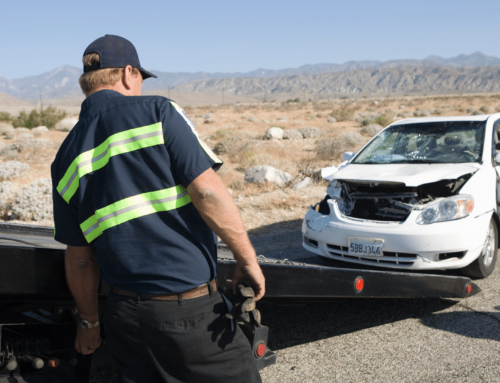If you’ve been off-road driving for a while, you’ll understand the exhilarating feeling that escaping from the asphalt can bring. There are remote and rugged terrains to explore, water ways to pass through and some amazing places to see once you’re off the beaten track.
But off-road exploring does come with some challenges and risks, and whether you are a seasoned professional, or you’re looking to get out bush for the first time, there are some important precautions to take and prepare for, particularly when it comes to safety, and being able to be easily recovered should you need to be.
Let’s take a look at the essential factors to think about before you plan your next weekend away.
Preparing Your Vehicle
Before taking off on your next 4×4 adventure, ensuring your vehicle is prepared properly should be top of your list. So, what do you need to check?
Tyre Check – ensure that your tyres are in good condition with sufficient tread depth, and at the right PSI. If you aren’t sure if your tyres need upgrading, it’s better to err on the side of caution. You may also consider changing to off-road tyres to give you better traction on uneven surfaces.
Suspension and Lift Kits – your suspension system, and how high off the ground your vehicle sits is an important factor when it comes to getting you home safe. If it’s been a while, you need to take a look at your vehicle’s suspension system, and perhaps consider installing a lift kit depending on where you are driving. A lift kit will give you increased ground clearance, which is crucial when it comes to navigating rocky and uneven terrains.
Skid Plates – if you are an experienced off-roader, you’ve likely already installed skid plates on your car, but if you haven’t, it is well worth it. These skid plates will help to protect essential components like the engine, transmission and fuel tank from rocks and other debris flicking up under the car.
4WD System Inspection – another very crucial element is to ensure your 4WD system is functioning correctly. If this is a new vehicle, or it’s been a while since you’ve been four-wheel-driving, take the time to familiarise yourself with the system.
Packing the Essentials
One of the best things about four-wheel driving is that it can take you far from civilisation but, this can also be one of the worst things if something goes wrong. Whether you are heading out for a day or a week, there are some essentials that you should pack to keep you safe, and to help in recovering your car should something happen.
Our must have essentials include:
Recovery Gear: Recovery straps, shackles, a quality winch and a shovel. Whether you need to get your vehicle out of a tight spot, or help someone else, these items can help to extract a vehicle from mud, sand, and other terrains.
Communication Devices: While mobile phones are great, they don’t always work once you are off-road. It is essential to ensure you have reliable communication tools like a two-way radio, satellite phone, or a personal locator beacon in case of emergencies. And of course, that golden rule – tell somewhere where you are going and when you expect to be back. That way, there is always someone to raise the alarm should you not be able to.
First Aid Kits: While these should be an essential component in your car on a day-to-day basis, when you head into more remote areas, a well-equipped first aid kit is a must. We also recommend a first aid training course to give you some confidence in dealing with issues that may arise.
Navigation Tools: GPS devices, maps and a compass are of course essential items for staying on course (particularly in areas where there may be minimal phone signal) but they can also help you navigate your way out or help give directions to a recovery team.
Knowing Your Terrain
An experienced off-roader will have a good idea of the type of terrain they will be traversing, but if you are a beginner or hitting a new track, doing your research is essential. What do you need to research? The topography of the area, weather conditions, and potential hazards. You should also be aware of seasonal changes that could affect trails, and whether there is damage to trails due to too much traffic.
It is also essential to stick to established trails to both reduce the risk of getting lost and minimise damage to the environment. By sticking to trails you will also minimise the risk of disturbing native wildlife and their habitat.
Travelling in Groups
It can be fun to hit the open road by yourself, but travelling in groups is infinitely more enjoyable, and safer. There are several reasons why we recommend travelling with another group, with recovery assistance high on the list. If your vehicle gets stuck or you encounter difficulties, being with someone else will allow for a quicker recovery of your vehicle. Depending on where you are, it may take a recovery team some time to get to you, so being able to recover yourself is essential.
Travelling in groups also allows you to distribute resources amongst vehicles, lightening the load on individual cars, and of course, in case of an emergency, more hands are better than less. Being with a group of people means there is additional support should you need help.
Driving Techniques
This one is possibly more for the novice and inexperienced drivers, but mastering off-road driving techniques is an important part of having a great day out. This includes being able to maintain a controlled and moderate speed to prevent you losing control of the vehicle, knowing how to use your vehicle’s gears correctly, and understanding how to approach and depart angles to avoid getting stuck.
We see lots of novice and inexperienced drivers needing recovery each year (as well as some experienced ones who have pushed it a little too hard) and we really recommend taking a 4WD drive course, just to give you the understanding and experience you need when getting out on the trails. We also recommend that beginners start on the easier tracks, building up confidence and skills before moving onto the more difficult tracks.
Skill and Experience to Get You Home Safe
Getting out and about in nature is a great way to experience something different, but off-road driving does take some preparation and precautions to ensure you don’t need to be recovered. If you do find yourself in a sticky situation, Westcoast 4×4 Recovery has the skills and experience needed to recover you and your vehicle, ensuring you get home safely.
We have a 100% recovery success and our quick response times means you won’t be waiting around for too long.
Pop our phone number in your phone, and if you need help, give us a call.





Leave A Comment